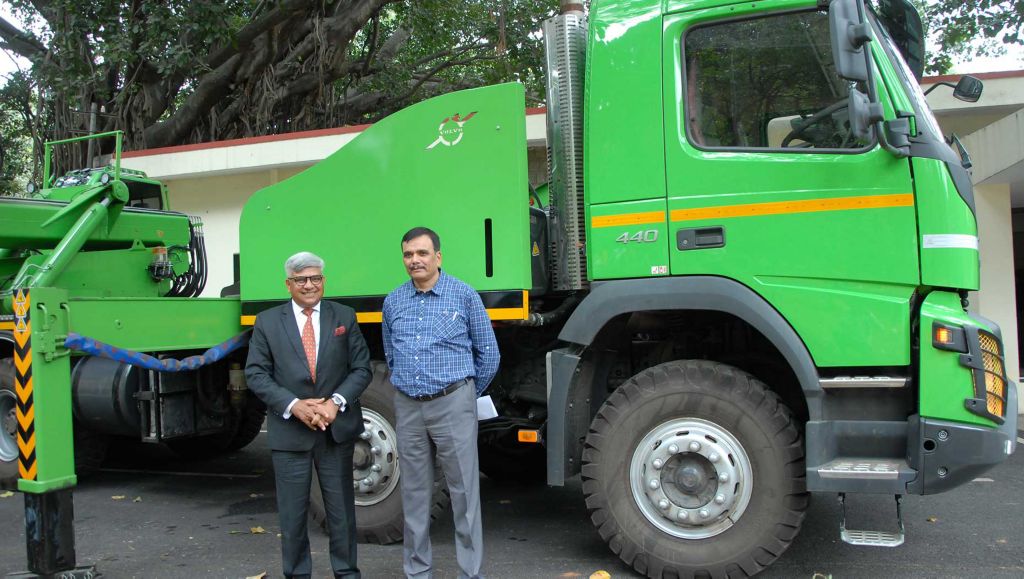Green Cover Retention 2017: A seminar organized by Institute of Wood Science and Technology and Volvo Trucks India


Environmental degradation is currently the most critical area of concern not only in India but also globally and the pace of degradation is increasing at a rapid rate. Urbanization, Mining, Infrastructure growth etc. have resulted in deforestation which is adversely impacting the climate and also leaving behind severe repercussions on Human life.
With India becoming the fastest growing economies of the world development projects are booming like anything and as we know tree cutting is a part of majority of the projects. Although necessary laws pertaining to compensatory afforestation are there but in an age where climate change is fast becoming a reality they may not suffice. Also, India recently ratified the COP21 agreement as per which we need to create an additional carbon sink of 2.5 billion tonnes of CO2.
Keeping in mind the aforesaid, it’s important that we start looking at ways in which the economic development can go hand in hand with environmental protection. Our country’s stringent forest and environmental laws and consistent involvement of the judiciary for enforcing the same has enabled it to retain its green cover despite huge biotic pressure.
Institute of Wood Science and Technology (IWST) under Indian Council of Forestry Research and Education (ICFRE), Ministry of Environment and Forest, has embarked on an ambitious project for exploring ways to retain our existing green cover. They have worked closely with industrial partners like Volvo Trucks, to drive solutions like tree transplantation, which aims to retain our existing Green Cover by using scientific and industrial knowledge.
Semi mature to mature trees which are nearly midway their lifecycle have maximum potential of carbon sequestration. Retaining such mature trees through the technique of tree transplantation is good for mitigation of impacts of climate change.
“After more than one year of successful operation of the transplantation projects, the Institute organised the seminar “Green Cover Retention 2017” to bring together researchers, scientists, academicians and industry professionals to understand and debate on this critical issue and help create a way forward to form “Policies and Practices” that will help our world to be a better place for generations to come” said by Mr. Surendra Kumar, Director, IWST.
Some key corporates like Volvo Group, Karamjeet Singh & Co Ltd, South Eastern Coalfields Ltd, National Mineral Development Corporation (NMDC) and Green Morning Horticulture Pvt ltd are partnering with IWST and ICFRE to take a step towards saving the environment.
The Volvo Group’s mission is to drive prosperity through transport solutions, and sustainability is the guiding principle that underpins our aspirations in this journey. This also means that our products and services’ solutions are aligned in the direction of holistic sustainability that enshrines environment care, innovation, economic efficiency & viability, with societal inclusiveness.
Volvo Group is the world’s first automotive manufacturer to be approved by World Wildlife Fund (WWF) to participate in its Climate Savers program. Under the current agreement, covering the period between 2015 and 2020, we are committed to a cumulative reduction of CO2 emissions from our products and production by atleast 40 million tons, compared to 2013 levels. And we do this through a focus on all steps – the manufacturing process & technology, product technology, the product application, the transport concept and the host of services associated with our solutions.
We believe that tree transplantation can help save millions of trees during highway construction and other building activities and this would be an invaluable tool in society’s ambition to preserve and increase the green cover of our country.
I am glad to see the host of stakeholders from various sections coming together at this seminar to deliberate and create a policy recommendation to achieve this critical and urgent need, said Kamal Bali, President & MD, Volvo Group in India.